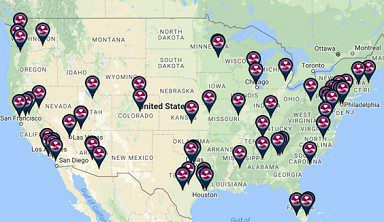The death of a senior loved one or spouse is a profound and life-altering experience. For family caregivers who have dedicated months, years, or even decades to the care of their senior loved one, the loss can be compounded by a sense of purposelessness and identity crisis. You’re not just grieving; you’re facing the task of redefining your life without the caregiver role you’ve become accustomed to. Here’s a compassionate guide on navigating this challenging time and steps to embrace a new chapter in your life.
Honoring Your Grief When a Senior Loved One Dies
First and foremost, give yourself permission to grieve. Your loss is significant, and grieving is not just about the person you’ve lost but also about the life you once knew. Understand that grief doesn’t follow a linear path and that it encompasses a range of emotions, including sadness, anger, guilt, and relief. Seek the support of friends, family, or a therapist to guide you through the process.
Managing Immediate Concerns
In the days and weeks following your loved one’s passing, there are practical matters that require attention:
Arrange a funeral or memorial service, or a celebration of life ceremony: You might find solace in being part of the planning, but remember to reach out for help from other family members or professionals.
Address financial and legal matters: This includes executing the will, closing accounts, and contacting insurance companies. Consult with an attorney or financial advisor to help you through this.
Take care of yourself: Continue or create a routine that includes proper nutrition, sleep, and physical activity. Taking care of your health is crucial during this stressful time.
Listen to what your body is telling you. If you feel tired, rest. If you’re feeling overwhelmed, take a step back. It’s okay to have days where you do less or choose not to engage in social activities. Your body’s responses are natural reactions to stress, and acknowledging your limits is a crucial part of the healing process.
Reclaiming Your Identity Beyond Caregiving
Reflection and Reassessment
Give yourself time to think about who you are outside of being a caregiver. You might:
Reflect on your interests: What hobbies did you enjoy before caregiving? What have you always wanted to try but never had the time for?
Reassess life goals: Are there personal or professional goals that you had set aside?
Journal your thoughts: Writing can be therapeutic and a way to explore your feelings and aspirations.
Reconnecting and Rebuilding
Rekindle relationships: Reconnect with friends and family, or even make new connections through community groups or online forums.
Consider part-time work or volunteering: If you’re not ready or don’t need to return to full-time work, consider part-time employment or volunteering to ease back into social interactions and add structure to your days.
Pursue education: Maybe it’s time to pursue that degree or certificate you always wanted.
Exploring New Opportunities
Find new ways to contribute: Your skills as a caregiver – patience, organization, empathy – are valuable in many settings. Look for opportunities to use these traits in ways that fulfill you.
Embrace change thoughtfully: Understand that redefining yourself takes time. It’s okay to take small steps and to sometimes feel uncertain about your path.
Fostering a Positive Mindset
Let yourself feel while you heal: Accept that it’s natural to grieve in the future as you better understand the loss and enter different life stages.
Practice self-compassion: Avoid being hard on yourself if you’re not moving forward as quickly as you think you should. Remember that there’s no right way to rebuild your life.
Use positive affirmations: Encourage yourself daily with positive affirmations about your strength and resilience.
Consider counseling or support groups: Sometimes, a professional or a community of those who’ve had similar experiences can offer invaluable support and guidance.
Navigating Life After the Loss of a Senior Loved One or Spouse
As you navigate life after the passing of your senior loved one or spouse, remember that your role as a caregiver was one of deep value and love. Now, it’s time to extend that care to yourself. Embracing your new identity will not happen overnight, but with each small step, you can find purpose and joy in life again. Allow yourself to feel, to explore, and to grow – your journey continues, and it’s filled with possibilities. Remember, you’re not alone, and there is support available as you move forward into this new chapter of your life.















